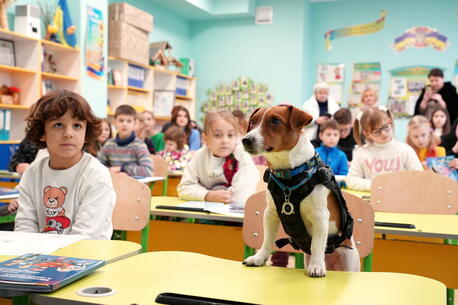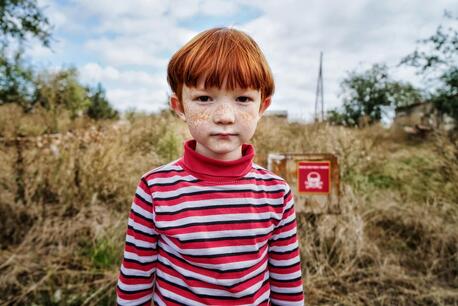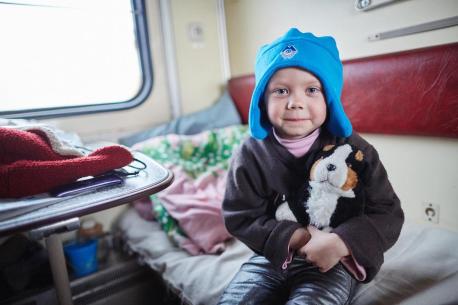
Children Uprooted: The Things They Carried
Objects. Souvenirs. Mementos.
As children, many of us had a prized possession — something that was ours alone. We took care of it. We cherished it. In turn, it preserved memories that we still carry with us today.
But what if you had been forced to leave home suddenly, fleeing war or escaping poverty? Could you have brought your prized possession? Would you have found something new along the way?
The photos here, collected by UNICEF and the National Human Rights Council in Morocco, illustrate the power of treasured belongings to help maintain a sense of personal belonging through a young person's journey. In some photos, objects appear to be a token of grief or desperation. In others, a testament to strength and courage. And sometimes, uprooted children have nothing but the clothes on their backs.
These photos are a poignant reminder that whether children are migrants, refugees, internally displaced or stateless, first and foremost, #AChildIsAChild.
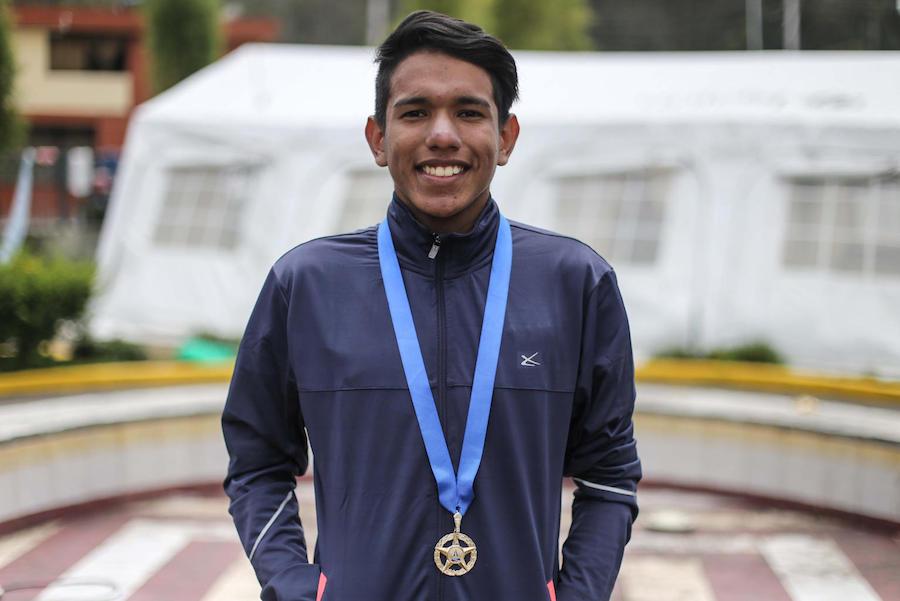
Harold, 17, left Caracas, Venezuela to start a new life in Lima, Peru in 2018. Packing to leave, he had to discard many things that didn't fit in his bag. But he was careful to bring along his high school medal. The medal represents the first of what he hopes will be many honors he will earn in his lifetime. © UNICEF/UN0255467/Moreno Gonzalez
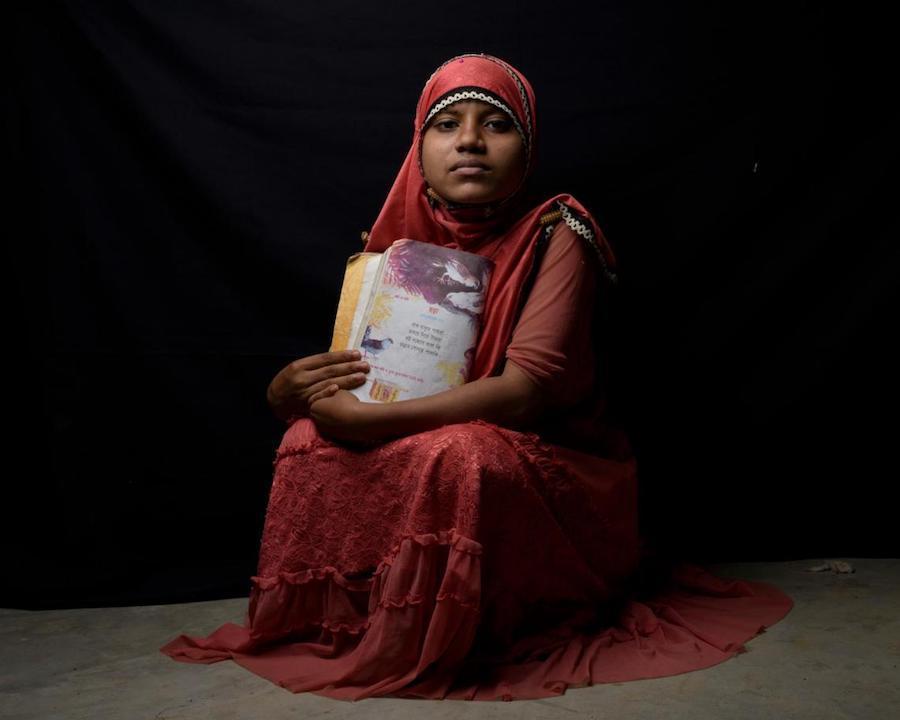
Rohingya refugee Tasmin, 14, holds her favorite book of poetry at a UNICEF-supported project in Kutupalong Refugee Camp, Cox's Bazar, Bangladesh in 2018. "When I make a decision for myself, like deciding to read a Bengali poem at home, I feel strong," says Tasmin. © UNICEF/UN0179490/Sokol
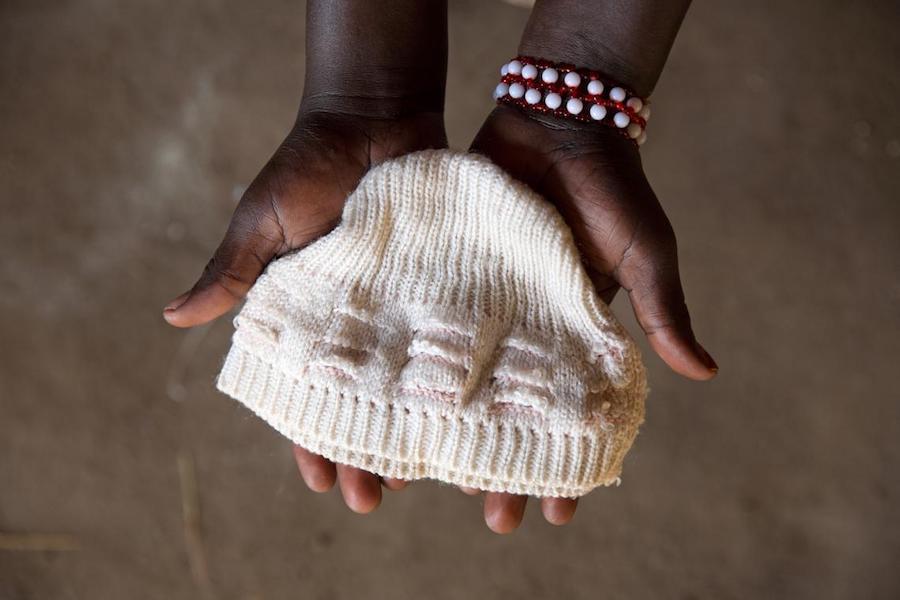
Agnes holds her baby boy's knitted hat in Bidi Bidi Refugee Settlement in northwestern Uganda in 2017. The young mother fled South Sudan with her infant son after civil war and instability created a severe food crisis. Unfortunately, Agnes's baby contracted malaria on the journey and died just days after their arrival at the settlement. The little hat is all she has to remember him. © UNICEF/UN068523/Oatway
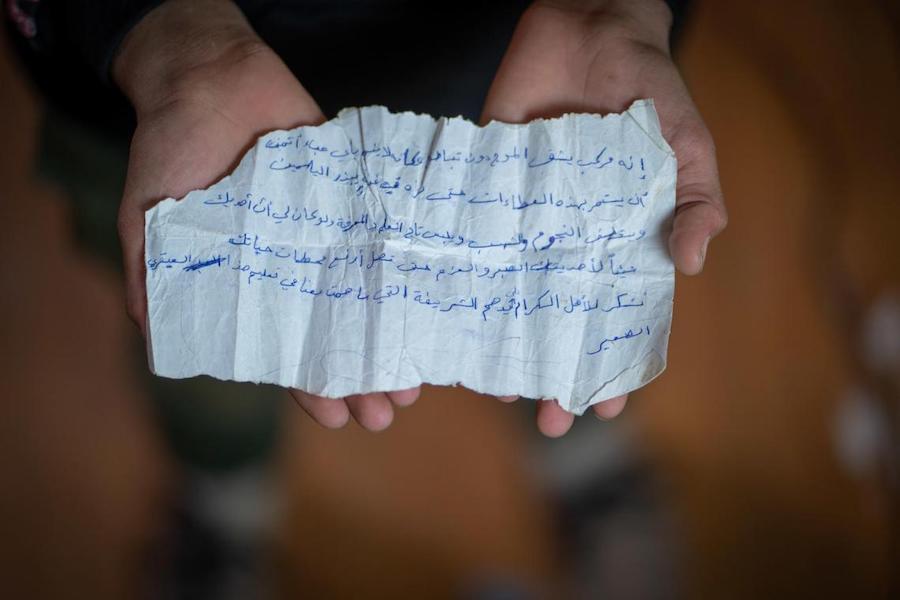
In Jordan's Za'atari Refugee Camp in 2018, Hamza, 14, holds a treasured handwritten note from his teacher in Syria. The note calls Hamza a star. Hamza is now in eighth grade and has made a big effort to keep up academically, despite the disruption to his education. He made sure to pack the note when his family left Syria. "It's important for me to keep it," he says, "because it reminds me of when I was the best student in my class." © UNICEF/UN0255469/Herwig
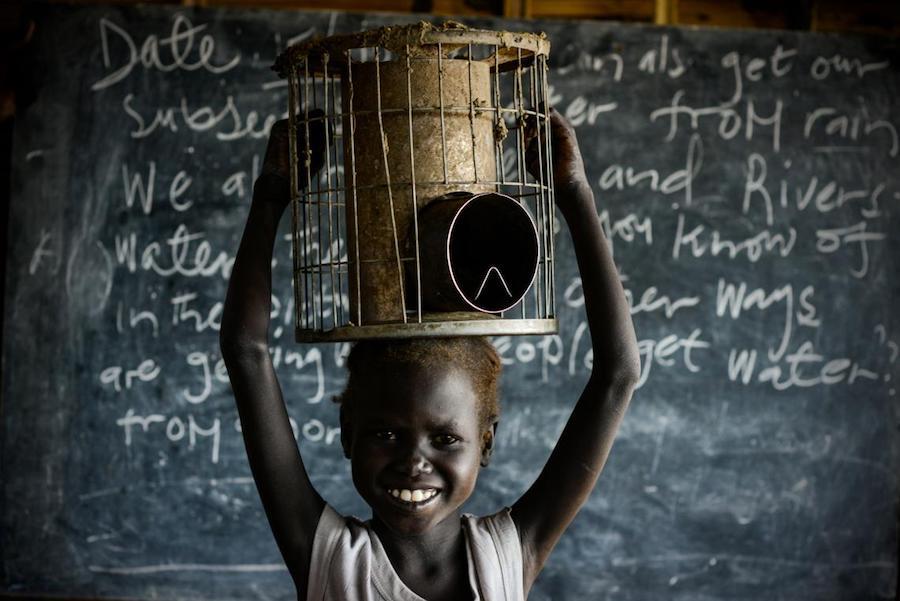
Six-year-old Nyaboth holds her family stove in Bentiu Protection of Civilians site in Unity State, South Sudan in 2016. Nyaboth carries the stove to school every day so she has something to sit on while she learns. © UNICEF/UN030148/Rich
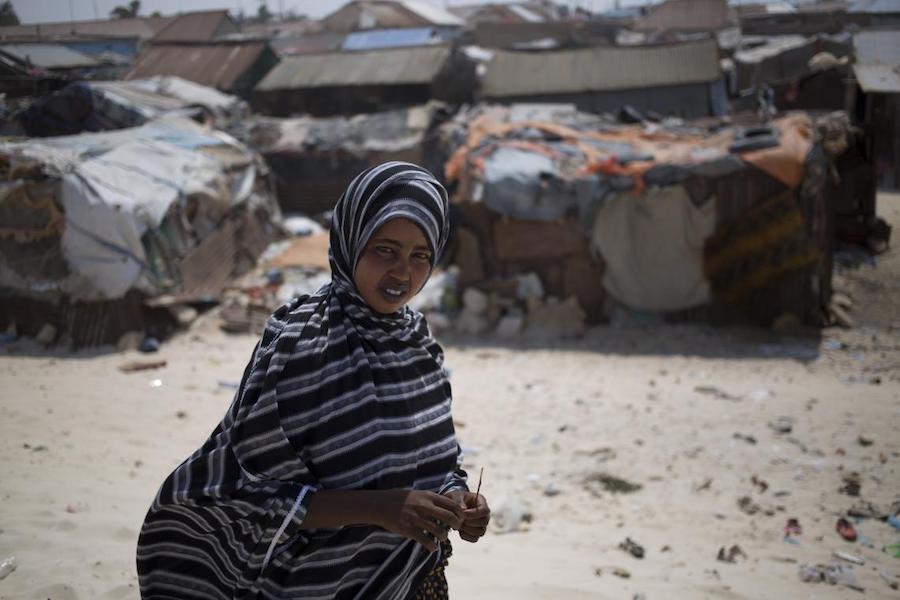
Extreme poverty in Somalia pushed 17-year-old Ideeya to leave everything behind — including her baby daughter — to migrate to Yemen in search of work in 2018. She had nothing but the clothes on her back. Ideeya spent four days with no water or food while waiting for a boat. Once it arrived, she had to fend off rape and abuse. Eventually, she returned home. "I want to work hard to ensure that my daughter does not become like me," she says. Ideeya cannot read or write. © UNICEF/UN0260172/Prinsloo
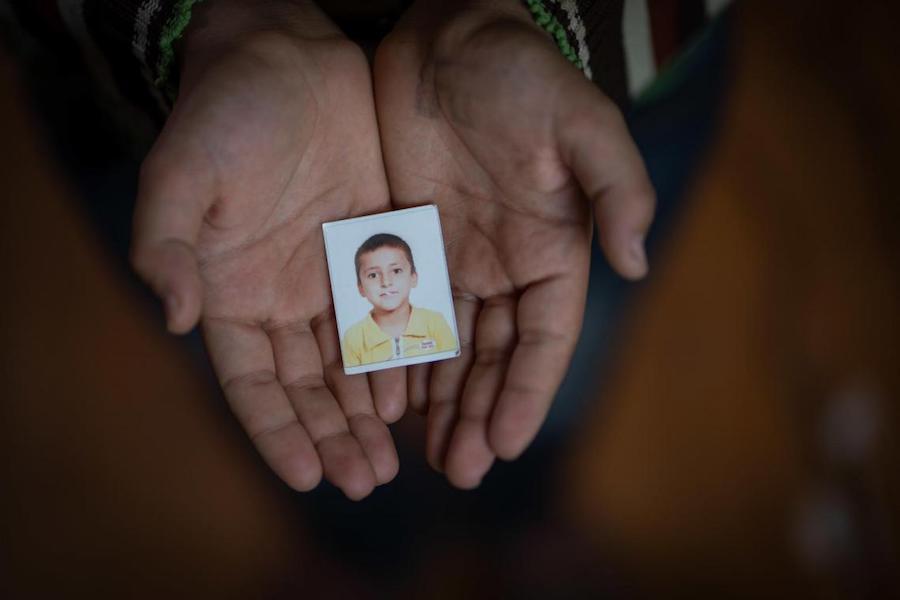
In northern Jordan's Za'atari Refugee Camp in 2018, 13-year-old Yahya holds a passport photo of himself. He was in first grade for a week in Syria before his family fled to Jordan. He keeps the photo safe so he can remember his past when he looks at it. "This photo is part of my childhood," he says. "It makes me smile to see myself, and I'm happy to have a memory of when I was younger in Syria." © UNICEF/UN0255468/Herwig
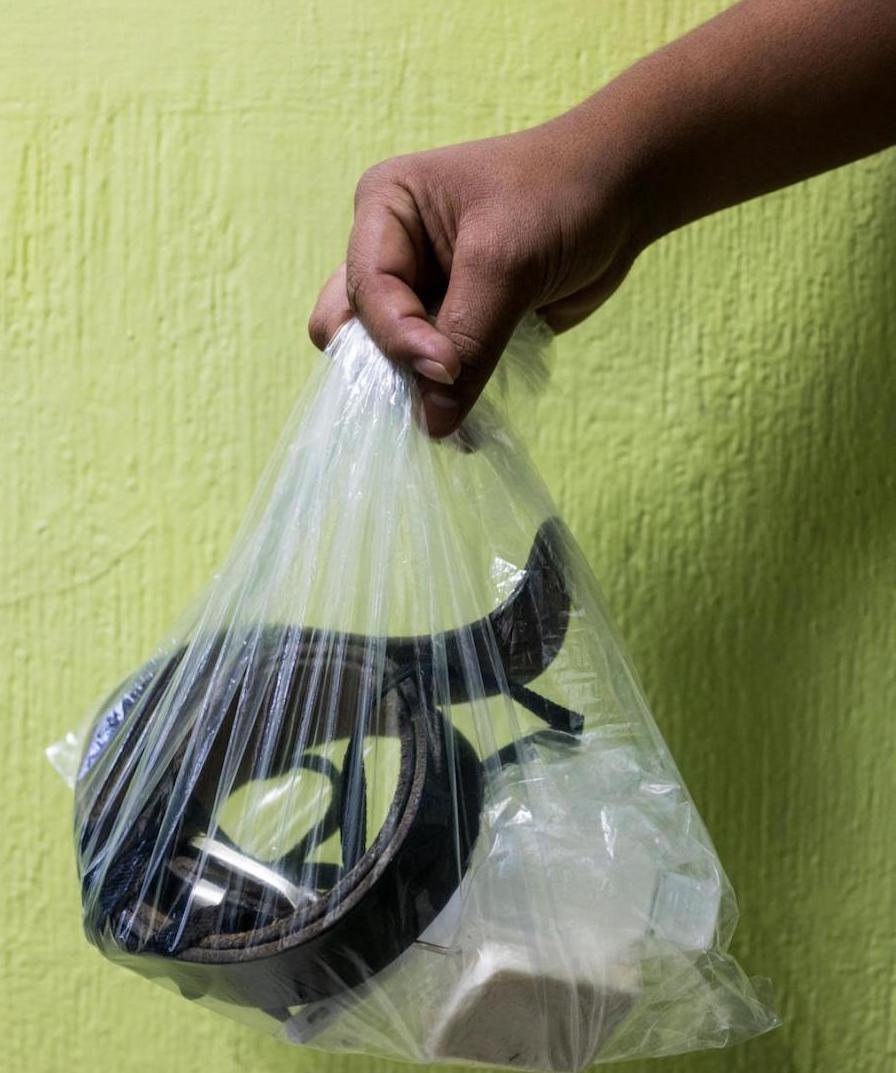
At a governmental reception center in Quetzaltenango, Guatemala in 2018, Eliasa, 15, holds the only belongings he had with him on his journey to the U.S. — a belt, shoelaces and some soap. All minors deported from Mexico are sent to this center by bus. Fleeing gang violence in their home communities and endemic poverty, children and families from El Salvador, Honduras and Guatemala migrate north through irregular routes, hoping to find safety and a better life in the U.S. "In many cases, children who are sent back to their countries of origin have no home to return to, end up deep in debt or or targeted by gangs," said María Cristina Percival, UNICEF Regional Director for Latin America and the Caribbean. "Being returned to impossible situations makes it more likely that they will migrate again." © UNICEF/UN0217830/Bindra
Photo at top: A little girl clutches her stuffed dog toy in a train car in eastern Ukraine's Sloviansk central train station in 2015. She and her mother moved into the train car after missiles destroyed their family home in Uglehorsk, Donetsk Oblast. © UNICEF/UNI181501/Zmey
